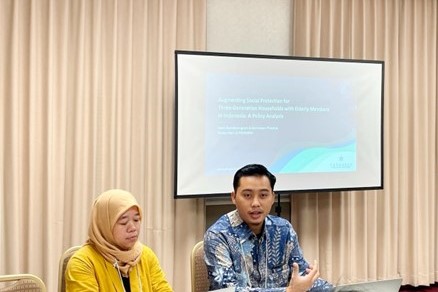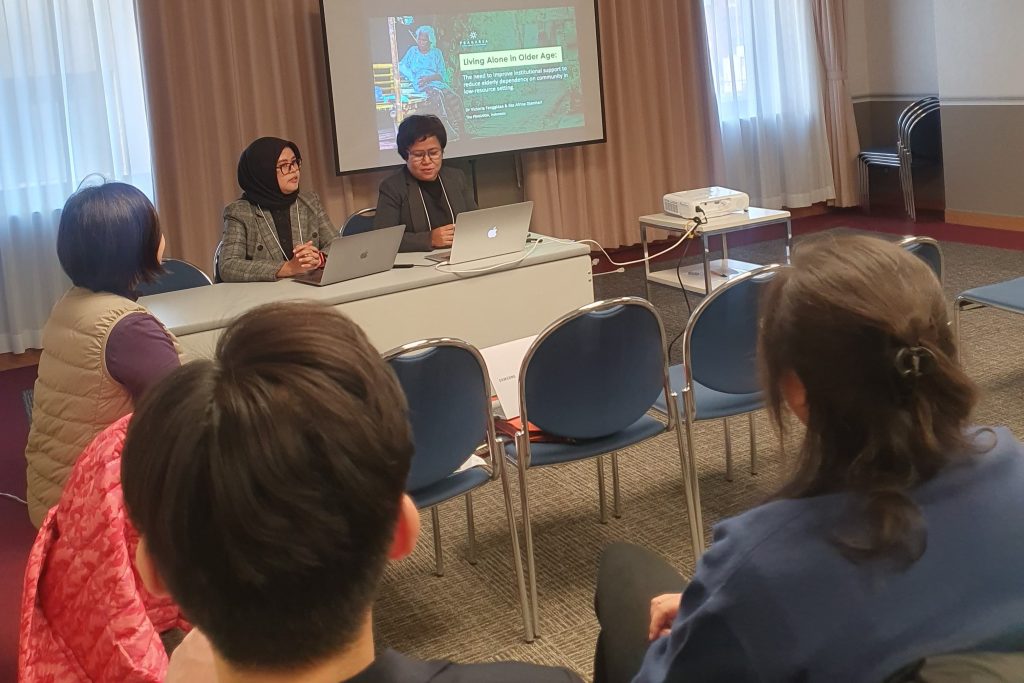PRAKARSA together with the Vaccine Access and Global Health Working Group held a discussion to explore further about global health architecture (global health architecture).
As we already know that since December 2021, Indonesia has officially held the G20 Presidency in 2022. The Indonesian government has three priority issues, namely global health, digital economic transformation, and energy transition.
The main agenda of the health sector in Indonesia's G20 Presidency are Restructuring the Global Health Architecture. At the G20 Presidency in 2022, Indonesia will encourage the strengthening of global health resilience and help the global health system be more inclusive, equitable, and responsive to crises.
Purposeful restructuring for strengthening global health resilience and helping global health systems to be more inclusive, equitable, and responsive to crises. Indonesia must be able to maximize the G20 chairmanship not only for the benefit of the G20 member countries, but also for other countries in the world, especially developing and poor countries.
Two speakers were present in the discussion, namely Prof. Tjandra Yoga Aditama, Director of Postgraduate Program at YARSI University who is also a member of the Expert Team on the Presidential Advisory Council and Dr. Puput Oktaminanti, Coordinator of TF6 Global Health Security and Covid-19 at Think Tank 20 Indonesia.
Ah Maftuchan Sherpa C20 Indonesia in his introduction said that the distribution of the Covid-19 vaccine throughout the world must be ensured and the achievement target of vaccination must be increased even 100% for the 2nd dose of vaccination. an agenda in the global health restructuring that is carried out. In addition, one issue that should not be left out is the target of achieving universal health coverage (UHC).
Prof. Tjandra encourages that the 20 G2022 agenda needs to be strengthened health security, AMR (Antimicrobial Resistance), tuberculosis, one health and climate change.
He also said that there were several things that needed attention, including centralized emergency programs, internalized health protocols/healthy lifestyles, promotive-preventive, community ownership, UHC, people/patient centered, industry 4.0, 5.0, and health wellbeing.
At the same time Prof. Tjandra also conveyed to the working group access to vaccines and global health C20 to continue to pay attention to advocacy for other health problems such as TB, HIV, and others because these diseases can get bigger due to a pandemic.
Based on data from ourwoldindata.org, as of February 13, 2022 only 10,6% of people in low-income countries received at least one dose of the Covid-19 vaccine.
Puput explained that today's global health is very important because the Covid-19 pandemic is the biggest challenge for the global community, so one way to do that is by building a stronger global health architecture. Puput also mentioned two important things that need attention, namely, first, encouraging the approach of all governments and communities, strengthening national, regional and global capacity and resilience against future pandemics. Second, one health is an approach that involves humans, animals and the environment.
To support the implementation of the global health architecture, Puput emphasized that in order for a coordinated policy response (financing, technology transfer, across sectors/partners) to be carried out, it is necessary to ensure that vaccines, diagnoses and therapies are developed, distributed and distributed equitably, a coordinated international system with good relations between sub-sectors is needed. -national, national, regional and global, there is coordination of the value chain, and accelerated information services.



